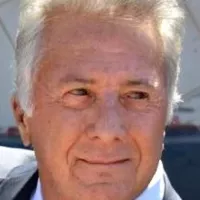Uganda, officially the Republic of Uganda, is a landlocked East African country bordering Kenya, South Sudan, the Democratic Republic of the Congo, Rwanda, and Tanzania. A significant portion of Lake Victoria is within its southern region. Located in the African Great Lakes region and within the Nile basin, Uganda experiences a varied equatorial climate. Its population is approximately 49.3 million as of 2024, with 8.5 million residing in Kampala, the capital and largest city.
1900: Sleeping Sickness Epidemic
From 1900 to 1920, a sleeping sickness epidemic in southern Uganda, along Lake Victoria's northern shores, killed more than 250,000 people.
1900: Treaty with Toro
In 1900, a treaty was signed with Toro, extending the Uganda Protectorate.
1901: Treaty with Ankole
In 1901, a treaty was signed with Ankole, extending the Uganda Protectorate.
1920: End of Sleeping Sickness Epidemic
From 1900 to 1920, a sleeping sickness epidemic in southern Uganda, along Lake Victoria's northern shores, killed more than 250,000 people.
1933: Treaty with Bunyoro
In 1933, a treaty was signed with Bunyoro, extending the Uganda Protectorate.
October 1962: Uganda Gained Independence
On 9 October 1962, Uganda gained independence from the UK with Queen Elizabeth II as head of state and Queen of Uganda.
1962: Uganda Gained Independence
In 1962, Uganda gained independence, with Milton Obote becoming the first prime minister.
1962: End of the Protectorate of Uganda
In 1962, the Protectorate of Uganda, under the British Empire, came to an end.
1962: First Post-Independence Election
In 1962, the first post-independence election was won by an alliance between the Uganda People's Congress (UPC) and Kabaka Yekka (KY). Milton Obote became executive prime minister, and Edward Muteesa II became president.
October 1963: Uganda Became a Republic
In October 1963, Uganda became a republic while maintaining its membership in the Commonwealth of Nations.
1964: UPC Reached a High
At the end of 1964, the UPC reached a high point when Basil Kiiza Bataringaya crossed the parliamentary floor with five other MPs from the DP, weakening the DP's opposition.
1964: UPC Delegates Conference in Gulu
In 1964, at the UPC delegates conference in Gulu, the battle over the Secretary-General position between Grace Ibingira and John Kakonge demonstrated Obote's declining control over his party.
1964: Government Responded to Demands
In 1964, the government responded to demands from some parts of the Buganda Kingdom, leading to a referendum on the "lost counties," which voted to return to Bunyoro, angering the Kabaka.
February 1966: Obote Assumed Special Powers
In February 1966, Obote arrested Ibingira and other ministers, assumed special powers, and consolidated his authority.
March 1966: Obote Abolished President and Vice-President Offices
In March 1966, Obote abolished the offices of President and vice-president, effectively dismissing the Kabaka, and gave Amin more power.
April 1966: Army Recruitment
In April 1966, Obote passed out eight hundred new army recruits at Moroto, of whom seventy percent came from the Northern Region, consolidating his power base.
May 1966: Attack on the Kabaka's Palace
In May 1966, Obote ordered Idi Amin to attack the Kabaka's palace after the Kabaka asked for foreign help. The Kabaka escaped into exile in London.
1966: UPC Internal Conflicts
By 1966, the UPC was tearing itself apart due to ethnic, religious, regional, and personal interests, causing factional conflicts and eroding the party's apparent strength.
1966: Obote Suspended the Constitution
In 1966, following a power struggle, Obote suspended the constitution and removed the ceremonial president and vice-president.
1966: Discontent Challenging Council Leaders
In 1966, the UPC fragmentation continued as opponents sensed Obote's vulnerability, with discontent challenging incumbent council leaders even in Obote's home district.
1966: Ochieng's Allegations
In early 1966, Daudi Ochieng accused Obote, Onama, and Neykon of illegal plundering of ivory and gold from the Congo, shaking the government and raising tensions.
1966: Mengo Crisis
The 1966 Mengo Crisis involved conflict with the Buganda kingdom, leading to Uganda's conversion from a parliamentary to a presidential system.
1967: Uganda Declared a Republic
In 1967, Uganda was proclaimed a republic with a new constitution, abolishing the traditional kingdoms and declaring Obote as president.
1967: Upcoming National Elections
In 1967, national elections loomed, and without the support of KY and growing factionalism in the UPC, there was a real possibility that the UPC would be out of power.
1968: Summer Olympics Medals
From 1968 to 1980, the Uganda national boxing team won four medals at the Summer Olympics.
1969: Uganda Population
In 1969, Uganda's population was 9.5 million people.
January 1971: Idi Amin Seized Control of Uganda
On 25 January 1971, Idi Amin seized control of Uganda in a military coup, deposing Obote from power.
1971: Idi Amin's Military Coup
In 1971, Idi Amin's military coup resulted in a brutal regime characterized by mass killings and economic decline.
1972: John Akii-Bua's Olympic Gold
At the 1972 Summer Olympics in Munich, John Akii-Bua won the first Olympic gold medal for Uganda in the 400m hurdles race with a world record time of 47.82 seconds.
1972: Expulsion of Ugandan-Asians
In 1972, Idi Amin required the expulsion of Ugandan-Asians, reducing the Indian population to as low as 7,000.
1972: African Cup of Champions Clubs
In 1972, Simba SC reached the final of the African Cup of Champions Clubs.
1974: World Amateur Boxing Championships
In 1974, the Uganda national boxing team won two medals at the World Amateur Boxing Championships.
1975: Cricket World Cup Qualification
In 1975, Uganda was part of the East Africa team that qualified for the Cricket World Cup.
June 1976: Air France Flight Hijacking
In June 1976, Palestinian terrorists hijacked an Air France flight and forced it to land at Entebbe airport, where hostages were held until an Israeli commando raid rescued them.
1978: African Cup of Nations
In 1978, Uganda's best finish in the African Cup of Nations was second place.
1979: Return of Indians after Amin's Ouster
After Idi Amin's ouster, many Indians returned to Uganda in 1979.
1980: Summer Olympics Medals
From 1968 to 1980, the Uganda national boxing team won four medals at the Summer Olympics.
1980: Ugandan Bush War Broke Out
In 1980, the Ugandan Bush War broke out. The war ended in January 1986 when Yoweri Museveni became president.
January 1986: Museveni Became President
In January 1986, Yoweri Museveni became president after his forces toppled the previous regime, concluding the Ugandan Bush War which broke out in 1980.
1986: NRM Took Power
In 1986, Yoweri Museveni's National Resistance Movement (NRM) took power after a six-year guerrilla war.
1986: Agriculture share of economy
In 1986, agriculture accounted for 56 percent of Uganda's economy, with coffee as its main export. The government also began rehabilitating the economy after the Idi Amin regime.
1986: Primary school attendance
In 1986, only two million children were attending primary school in Uganda.
1990: Start of economic growth
From 1990 to 2015, Uganda's real gross domestic product (GDP) grew at an average of 6.7% annually.
1991: African Cup of Champions Clubs
In 1991, SC Villa reached the final of the African Cup of Champions Clubs.
1992: Poverty incidence
In 1992, 56 percent of Uganda's population lived in poverty.
1996: Davis Kamoga's Bronze Medal
In 1996 Summer Olympics in Atlanta, 400 metres runner Davis Kamoga earned the bronze medal.
1996: Establishment of Uganda Securities Exchange
In 1996, the Uganda Securities Exchange was established, leading to the listing of several equities.
1997: Davis Kamoga's Silver Medal
In 1997, Davis Kamoga earned the silver medal at the World Championships.
1997: Free Primary School Declaration
In 1997, the government declared that primary school would be free for all children.
1997: Universal Primary Education
Since 1997, significant gains have been made in access to primary education due to the introduction of universal primary education (UPE).
1998: Sector Reforms
Sector reforms in the period 1998-2003 included the commercialisation and modernisation of the National Water and Sewerage Corporation.
1999: Increase in primary school attendance
By 1999, six million children were attending primary school in Uganda, following the government's declaration of free primary education in 1997.
2000: Start of Period of Economic Growth with Increased Poverty Levels
Between 2000 and 2003, Uganda experienced an average annual economic growth of 2.5 percent.
2000: Contraceptive Use
From 2000 to 2011, less than half of all sexually active unmarried women in Uganda used a modern contraceptive method, with little change in this fraction.
2001: PEAP estimates
From 2001 to 2015, the PEAP estimated that about US$1.4 billion was needed to increase water supply coverage up to 95 percent.
2001: Elimination of user fees at state health facilities
In 2001, Uganda eliminated user fees at state health facilities, leading to an 80 percent increase in visits, with over half of this increase coming from the poorest 20 percent of the population.
2001: Unbundling of energy markets
Since 2001 Uganda's generation, transmission and supply segments of the energy market have been unbundled.
September 2002: Population Increase
In the 12 years since September 2002, Uganda's population increased by 10.6 million people.
2002: Literacy Rate at Census
At the 2002 census, Uganda had a literacy rate of 66.8 percent (76.8 percent male and 57.7 percent female).
2002: Traditional Religions
In 2002, 1% of Uganda's population followed traditional religions.
2002: Religious Adherence
In 2002, the Roman Catholic Church had the largest number of adherents (41.6%), followed by the Anglican Church of Uganda (35.9%).
2003: End of Period of Economic Growth with Increased Poverty Levels
Between 2000 and 2003, despite economic growth, poverty levels in Uganda increased by 3.8 percent.
2003: Sector Reforms
Sector reforms in the period 1998-2003 included decentralisation and private sector participation in small towns.
2004: Water and Sanitation Under Poverty Eradication Action Plan
In 2004, the water and sanitation sector was recognised as a key area under the Poverty Eradication Action Plan (PEAP).
May 2005: British government withholds aid
In May 2005, the British government decided to withhold part of its aid to Uganda, due to attacks on political freedom in the country.
July 2005: Referendum Cancels Ban on Multi-Party Politics
In July 2005, a constitutional referendum cancelled the nineteen-year ban on multi-party politics in Uganda, which had been in place under Museveni's "Movement" system.
2005: Female-Headed Households
In 2005, 26% of households in Uganda were headed by women only, an increase from previous years due to male deaths from AIDS.
2005: Dorcus Inzikuru's World Championship
In 2005, Dorcus Inzikuru won the 3000 m steeplechase at the World Championships.
2005: Release of Feelings Struggle
In 2005, Feelings Struggle, directed and written by Hajji Ashraf Ssemwogerere, became the first publicly recognized film produced solely by Ugandans.
2005: Swahili as Second Official Language
In 2005, Swahili was approved as Uganda's second official national language, after English was the only official language until the constitution was amended.
2005: Presidential term limits abolished
In 2005, the parliament abolished presidential term limits. Allegedly, President Museveni used public funds, paying US$2,000 to each member of parliament who supported the measure.
2005: Public Spending on Education
Public spending on education was at 5.2 percent of the 2002–2005 GDP.
February 2006: Arrest of Kizza Besigye and Siege of High Court
Before the February 2006 elections, the arrest of the main opposition leader Kizza Besigye and the siege of the High Court during a hearing of Besigye's case by heavily armed security forces led to condemnation.
February 2006: Presidential elections held
In February 2006, presidential elections were held in Uganda. Museveni ran against several candidates, with Kizza Besigye as the most prominent.
2006: Expenditure Framework Introduction
According to a 2006 published report, a comprehensive expenditure framework had been introduced to co-ordinate financial support by external donors, the national government, and nongovernmental organisations.
2006: Ugandan Water Supply and Sanitation Sector Progress Report
According to a 2006 published report, the Ugandan water supply and sanitation sector had made substantial progress in urban areas since the mid-1990s.
2006: Dorcus Inzikuru's Commonwealth Games Win
In 2006, Dorcus Inzikuru won the 3000 m steeplechase at the Commonwealth Games.
2006: Non-Governmental Organizations (Amendment) Act passed
In 2006, the Non-Governmental Organizations (Amendment) Act was passed, stifling the productivity of NGOs through erecting barriers to entry, activity, funding and assembly within the sector.
2006: Pregnancy-Related Complications
The 2006 Uganda Demographic Health Survey (UDHS) indicated that roughly 6,000 women die each year from pregnancy-related complications.
2007: Services Sector Surpasses Agriculture
By 2007, the services sector had surpassed agriculture, accounting for 52 percent of Uganda's GDP.
2007: Universal Secondary Education
In 2007, Uganda became the first country in sub-Saharan Africa to introduce universal secondary education (USE).
2007: Harassment After Newspaper List
In 2007, a newspaper, the Red Pepper, published a list of allegedly gay men, leading to harassment of those listed.
2007: Pension Sector Reform
In 2007, pension sector reform was the centre of attention as one of the ways of increasing formal domestic savings.
2007: Violations of refugee rights
In 2007, the US Committee for Refugees and Immigrants reported several violations of refugee rights in Uganda, including forcible deportations by the Ugandan government and violence directed against refugees.
2008: Research Funding Increase
Between 2008 and 2010, research funding in Uganda increased from 0.33% to 0.48% of GDP.
2008: HIV Infection Rates
By the end of 2008, HIV infection rates in Uganda had fallen to 6.4 percent of the population from 30 percent in the 1980s.
February 2009: UN accuses LRA of brutality
In February 2009, a UN official accused the Lord's Resistance Army (LRA) of "appalling brutality" in the Democratic Republic of Congo.
September 2009: Riots after king is refused permission to visit Buganda Kingdom
In September 2009, Museveni refused Kabaka Muwenda Mutebi, the Baganda king, permission to visit some areas of Buganda Kingdom. Riots occurred and over 40 people were killed.
October 2009: Anti-Homosexuality Bill submitted
On 14 October 2009, MP David Bahati submitted the private member's Anti-Homosexuality Bill in the Ugandan parliament, which would have broadened the criminalisation of homosexuality and introduced the death penalty in some cases.
2009: Poverty incidence
In 2009, 24.5 percent of Uganda's population lived in poverty.
2009: National Science, Technology and Innovation Policy
In 2009, the National Science, Technology and Innovation Policy was established to strengthen national capability to generate, transfer, and apply scientific knowledge, skills, and technologies for sustainable utilization of natural resources.
October 2010: Rolling Stone publishes list of homosexuals
On 9 October 2010, the Ugandan newspaper Rolling Stone published a front-page article titled "100 Pictures of Uganda's Top Homos Leak" that listed the names, addresses, and photographs of 100 homosexuals. According to gay rights activists, many Ugandans have been attacked since the publication.
2010: East African Common Market Protocol
According to the East African Common Market Protocol of 2010, the free trade and free movement of people is guaranteed, including the right to reside in another member country for purposes of employment.
2010: Researchers Doubled
Between 2008 and 2010, the number of researchers in Uganda doubled from 1,387 to 2,823.
2010: Access to Improved Water Source
In 2010, 38 percent of the population still had no access to an improved water source.
2010: Unsafe Abortion Maternal Deaths
In 2010, the Ugandan Ministry of Health estimated that unsafe abortion accounted for 8% of the country's maternal deaths.
January 2011: Murder of gay rights activist David Kato
On 27 January 2011, gay rights activist David Kato was murdered.
February 2011: Museveni declared winner of the 2011 elections
On 20 February 2011, the Uganda Electoral Commission declared incumbent president Yoweri Kaguta Museveni the winner of the 2011 elections, which were held on 18 February 2011. The opposition condemned the results as fraudulent. Museveni won with 68% of the votes, topping Besigye. The European Union's Election Observation Mission reported administrative and logistical failures that led to Ugandan citizens being disfranchised.
April 2011: "Walk to Work" demonstrations
During the April 2011 "Walk to Work" demonstrations, 9 people were killed.
July 2011: Little League World Series Qualification
In July 2011, Kampala, Uganda qualified for the 2011 Little League World Series in Williamsport, Pennsylvania for the first time, beating Saudi Arabian baseball team Dharan LL.
2011: Access to improved sanitation
In 2011, access to improved sanitation was reportedly 70 percent in rural areas and 81 percent in urban areas according to government figures, but only 34 percent according to UN figures.
2011: Contraceptive Use Among Married Women
In 2011, only approximately 26% of married women in Uganda used contraceptives, with substantial differences between poor and wealthy women.
2011: Museveni Elected President
Yoweri Museveni was elected president in the 2011 general elections.
July 2012: Ebola outbreak in Kibaale District
In July 2012, there was an Ebola outbreak in the Kibaale District of Uganda.
August 2012: Anonymous hacks Ugandan government websites
Since August 2012, the hacktivist group Anonymous has threatened Ugandan officials and hacked official government websites over its anti-gay bills. Some international donors have threatened to cut financial aid to the country if anti-gay bills continue.
September 2012: Torture and extrajudicial killings reported
According to a 2012 US State Department report, between January and September 2012, "the African Center for Treatment and Rehabilitation for Torture Victims registered 170 allegations of torture against police, 214 against the UPDF, 1 against military police, 23 against the Special Investigations Unit, 361 against unspecified security personnel, and 24 against prison officials".
October 2012: End of Ebola outbreak declared
On October 4, 2012, the Ministry of Health officially declared the end of the Ebola outbreak in Uganda after at least 16 people had died.
2012: US Department of State's Human Rights Report on Uganda
According to the United States Department of State's 2012 Human Rights Report on Uganda, "The World Bank's most recent Worldwide Governance Indicators reflected corruption was a severe problem" and that "the country annually loses 768.9 billion shillings ($286 million) to corruption."
2012: Increase in lower secondary enrolment
Between 2007 and 2012, the introduction of universal secondary education (USE) led to an increase in lower secondary enrolment of nearly 25%.
2012: Embezzlement of Donor Funds
In 2012, $12.6 million of donor funds from the Office of the Prime Minister was embezzled. These funds were "earmarked as crucial support for rebuilding northern Uganda, ravaged by a 20-year war, and Karamoja, Uganda's poorest region."
2012: Poverty levels
In 2012, 37.8 percent of Uganda's population lived on less than $1.25 a day.
2012: Stephen Kiprotich's Olympic Marathon Win
In 2012, Stephen Kiprotich won the marathon at the Summer Olympics in London.
2012: Petroleum Bill Passed
In 2012, the Petroleum Bill was passed by parliament. According to Global Witness, Uganda now has "oil reserves that have the potential to double the government's revenue within six to ten years, worth an estimated US $2.4 billion per year."
2012: Uganda on Heavily Indebted Poor Countries list
In 2012, the World Bank still listed Uganda on the Heavily Indebted Poor Countries list.
2012: Infant mortality rate
In 2012, the infant mortality rate in Uganda was approximately 61 deaths per 1,000 children.
2012: Tourism's impact
In 2012–13 financial year, tourism in Uganda was a major driver of employment, investment and foreign exchange, contributing 4.9 trillion Ugandan shillings to Uganda's GDP.
2012: Little League World Series Attendance
Little League teams from Uganda qualified for and attended the 2012 Little League World Series.
2012: Pilot Studies for Health Services
Pilot studies in 2012 by Future Health Systems have shown that the rate of deaths due to pregnancy-related complications could be significantly reduced by implementing a voucher scheme for health services and transport to clinics.
April 2013: Launch of Uganda Vision 2040
In April 2013, Uganda Vision 2040 was launched to transform Ugandan society from a peasant to a modern and prosperous country within 30 years.
August 2013: Tourism contribution to GDP
As of August 2013, tourism in Uganda contributed 4.9 trillion Ugandan shillings (US$1.88 billion or €1.4 billion) to Uganda's GDP in the financial year 2012–13.
August 2013: Suspected Congo Crimean Hemorrhagic Fever Outbreak
On August 16, 2013, the Health Ministry announced that three people had died in northern Uganda from a suspected outbreak of Congo Crimean Hemorrhagic Fever.
December 2013: Anti-Homosexuality Bill passed
On 20 December 2013, the Anti-Homosexuality Bill was passed by the Ugandan parliament.
2013: UNICEF report on FGM
According to a 2013 UNICEF report, the prevalence of female genital mutilation (FGM) is low in Uganda, with only 1 percent of women having undergone FGM.
2013: Government fails to investigate killings
According to the Humans Rights Watch 2013 World Report on Uganda, the government has failed to investigate the killings associated with both the September 2009 riots and the April 2011 "Walk to Work" demonstrations.
2013: Stephen Kiprotich's World Championship Marathon Win
In 2013, Stephen Kiprotich won the marathon at the World Championships.
February 2014: Museveni signs Anti-Homosexuality Bill
On 24 February 2014, President Museveni signed the Anti-Homosexuality Bill into law. On 28 February 2014 the World Bank said it would postpone a US$90 million loan, while the United States said it was reviewing ties with Uganda.
June 2014: Pig protest at parliament
In June 2014, protesters smuggled two piglets into the parliament to highlight corruption amongst members of parliament, referring to them as "MPigs".
August 2014: Constitutional Court invalidates Anti-Homosexuality Bill
On 1 August 2014, the Constitutional Court of Uganda ruled the Anti-Homosexuality Bill invalid as it was not passed with the required quorum. On 13 August 2014, the Ugandan attorney general dropped all plans to appeal.
2014: Traditional Religions
According to the 2014 census, 0.1 percent of Uganda's population followed traditional religions.
2014: Uganda Population
In 2014, Uganda's population was 34.9 million people, with a total fertility rate of 5.97 children born per woman.
2014: UCC Regulations on Ugandan Content
In 2014, the Uganda Communications Commission (UCC) began preparing regulations requiring Ugandan television to broadcast 70 percent Ugandan content, with 40 percent being independent productions.
2014: GDP Growth
In fiscal year 2014–15, Uganda recorded real gross domestic product growth of 5.0 percent.
2015: End of economic growth period
From 1990 to 2015, Uganda's real gross domestic product (GDP) per capita grew at 3.3% per annum.
2015: PEAP estimates
From 2001 to 2015, the PEAP estimated that about US$1.4 billion was needed to increase water supply coverage up to 95 percent.
2015: Stephen Kiprotich Second at Tokyo Marathon
In 2015, Stephen Kiprotich finished second at the Tokyo Marathon.
2015: Uganda's Export Income
In 2015, Uganda's economy generated export income from coffee (US$402.63 million), oil re-exports (US$131.25 million), base metals and products (US$120.00 million), fish (US$117.56 million), maize (US$90.97 million), cement (US$80.13 million), tobacco (US$73.13 million), tea (US$69.94 million), sugar (US$66.43 million), hides and skins (US$62.71 million), cocoa beans (US$55.67 million), beans (US$53.88 million), simsim (US$52.20 million), flowers (US$51.44 million), and other products (US$766.77 million).
2015: FIBA Africa Championship Debut
In 2015, Uganda's national basketball team, nicknamed "The Silverbacks", made its debut at the FIBA Africa Championship.
2015: World Bank Governance Indicators Ranking
In 2015, the World Bank's Worldwide Governance Indicators ranked Uganda in the worst 12 percentile of all countries.
September 2016: Uganda-Tanzania Pipeline Deal
In September 2016, Uganda and Tanzania signed a deal to build a 1,445 km, $3.5bn crude oil pipeline.
November 2016: Inflation Rate
In November 2016, the Ugandan Bureau of Statistics announced the inflation rate was 4.6 percent.
2016: Remittances to Uganda
According to the World Bank, in 2016, Uganda received an estimated US$1.099 billion in remittances from abroad.
2016: Transparency International Corruption Ranking
In 2016, Uganda ranked 151st best out of 176 and had a score of 25 on a scale from 0 (perceived as most corrupt) to 100 (perceived as clean), according to Transparency International.
2016: Museveni Elected President
Yoweri Museveni was elected president in the 2016 general elections.
2017: Airport Traffic
In 2017, Entebbe International Airport saw 1.53 million passengers, an 8% increase from the previous year.
2017: Inflation Rate
In the financial year 2016/17, Uganda recorded an inflation rate of 5.7%.
June 2018: Drop in Inflation Rate
On 29 June 2018, Uganda's statistics agency reported a drop in inflation to 3.4 percent for the financial year ending 2017/18.
2018: Telecommunications Subscribers
As of 2018, there were over 24 million telecommunications subscribers in Uganda, with more than 95% of internet connections made using mobile phones.
2018: Rise of Evangelical/Pentecostal/Born-Again Churches
By 2018, the Evangelical/Pentecostal/Born-Again Christian category showed the most growth, rising from 4.7% in 2002 to 11.1%.
2018: Asuman Basalirwa becomes member of parliament
In 2018, Asuman Basalirwa became a member of parliament from the opposition representing Bugiri Municipality on Justice Forum party ticket.
2019: Slow progress on the African continent
As of 2019, progress on the African continent was slow but progressing with South Africa being the only country where same sex marriages are recognised.
2019: Halimah Nakaayi's World Championship Win
In 2019, Halimah Nakaayi won the 800 meters race at the World Championships.
2019: Global Innovation Index Ranking
In 2019, Uganda was ranked 102nd in the Global Innovation Index.
2019: Forest Landscape Integrity Index ranking
In 2019, the country had a Forest Landscape Integrity Index mean score of 4.36/10, ranking it 128th globally out of 172 countries.
2019: Life expectancy
In 2019, the life expectancy at birth in Uganda was estimated to be 63.4 years.
2020: Olympics Achievements
As of 2020, Uganda at the Olympics has won a total of two gold, three silver, and two bronze medals.
2020: Accredited Universities
As of 2020, the NCHE website listed 46 private accredited universities in Uganda, including Makerere University, Mbarara University of science and technology, Kyambogo University, Gulu University, Uganda Christian University, and Kampala International University.
January 2021: Museveni re-elected in presidential elections
In January 2021, President Yoweri Museveni was re-elected in presidential elections. According to official results, Museveni won the elections with 58% of the vote, while Bobi Wine had 35%. The opposition challenged the result because of widespread fraud and irregularities.
August 2021: Uganda Hosts Refugees
As of August 2021, Uganda hosts over 1.4 million refugees, primarily from South Sudan and the Democratic Republic of the Congo, according to the UNHCR.
August 2021: Refugees from Afghanistan
In August 2021, Uganda received some refugees from Afghanistan following the Taliban takeover.
2021: Museveni Elected President
Yoweri Museveni was elected president in the 2021 general elections.
2022: Uganda Administrative Divisions
As of 2022, Uganda is divided into four regions and 136 districts, with rural areas further subdivided into sub-counties, parishes, and villages, while urban areas contain municipal and town councils.
March 2023: Tabling of Anti-Gay Law
In March 2023, Asuman Basalirwa, a member of parliament, introduced a proposed law to penalize gay sex and its promotion, sparking debate on human rights versus cultural values. The parliamentary speaker, Annet Anita Among, directed the bill to a committee for review and vowed to pass the bill into law.
March 2023: Parliament passes anti-homosexuality bill
In March 2023, the parliament of Uganda rapidly passed the anti-homosexuality bill with overwhelming support.
May 2024: New Inspector General of Police appointed
On May 18, 2024, Abbas Byakagaba replaced Geoffrey Tumusiime as the Inspector General of Police (IGP) of the Uganda Police Force.
2024: Uganda Population
As of 2024, Uganda's population was estimated at 49.3 million people.
2024: Global Innovation Index Ranking
In 2024, Uganda was ranked 121st in the Global Innovation Index, a decrease from 102nd in 2019.
2024: Population of Uganda
In 2024, Uganda's population is estimated to be 49.3 million, with 8.5 million residing in Kampala, the capital and largest city.
2024: ICC T20 World Cup Qualification
Recently, the Uganda national cricket team qualified for 2024 ICC T20 World Cup.
2040: Uganda Vision 2040
Uganda Vision 2040 envisions transforming Ugandan society from a peasant to a modern and prosperous country by 2040.
Mentioned in this timeline

Basketball is a team sport played on a rectangular court...

Elizabeth II reigned as Queen of the United Kingdom and...
Sudan officially the Republic of the Sudan is a country...
Germany officially the Federal Republic of Germany is a nation...

The Catholic Church the largest Christian church globally with over...
Africa is the second-largest and second-most populous continent comprising of...
Trending

25 minutes ago MAC eyes Sacramento State football addition amid financial debate and conference realignment.
25 minutes ago Quentin Halys Rallies to Victory in Rotterdam ATP 500 Tournament Against Rottgering

1 hour ago Sidney Crosby Captans Team Canada, Passing Torch to McDavid for 2026 Olympics.
2 hours ago Hailey Baptiste in Dubai 2026; Kasatkina Discusses Olympics and Figure Skating.

3 hours ago Dustin Hoffman joins Adam Sandler in Netflix's 'Time Out' remake cast.

3 hours ago Peggy Fleming's 1968 Olympic Gold: A Nation's Hope and Skating Legend Revisited.
Popular

Kid Rock born Robert James Ritchie is an American musician...
The Winter Olympic Games a major international multi-sport event held...

Pam Bondi is an American attorney lobbyist and politician currently...

Barack Obama the th U S President - was the...

XXXTentacion born Jahseh Dwayne Ricardo Onfroy was a controversial yet...

Michael Joseph Jackson the King of Pop was a highly...